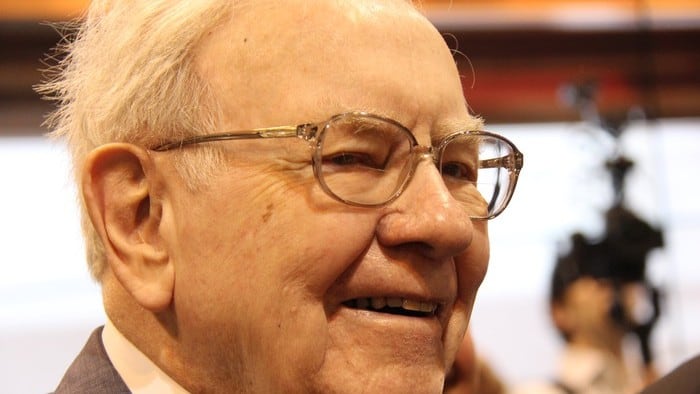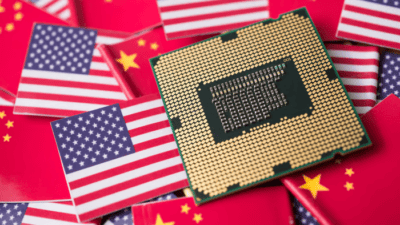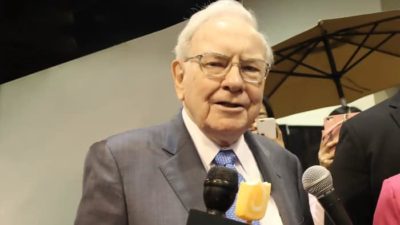This article was originally published on Fool.com. All figures quoted in US dollars unless otherwise stated.
A five-year chart of The Kraft Heinz (NASDAQ: KHC) stock offers a near-perfect reversed reflection of the S&P 500 index's performance over the same time frame. Share prices of the food product giant have declined nearly 57% over the last five years, underperforming the 46% gain from the index. But Warren Buffett's Berkshire Hathaway Inc. (NYSE: BRK.A)(NYSE: BRK.B) has held to its shares in the company throughout that half-decade.
Berkshire is one of the company's largest shareholders. As of March 2022, Berkshire owned 26.6% of Kraft Heinz.
Why has Buffett continued to hold an underperforming stock? Well, for one thing, it's not like there haven't been any good reasons to sell. Here are a few things that went wrong following the merger between Kraft Foods and H.J. Heinz:
- Kraft saw its market share erode against the growth of private-label brands, leading to a decline in sales.
- In 2018, the company disclosed an SEC investigation into its accounting policies over supplier agreements.
- Kraft also cut its quarterly dividend to address more than $30 billion of long-term debt it held as of 2018.
Most investors would have sold Kraft Heinz long ago, but not Buffett. In early 2019, Buffett told CNBC he would be happy to own the stock 10 years from now.
Buffett has cut loose several stocks over the past several years that failed to perform to his expectations. He closed Berkshire's position in IBM in 2017, after he bought $10.8 billion worth of shares in the computer hardware maker in 2011. But there is clearly something about Kraft Heinz that he values. Let's look at three possible reasons why he has remained patient with this one.
1. Buffett likes to do business with people he trusts
Buffett admitted in 2019 he misjudged the competitive position of packaged food brands against Wal-mart Stores, Inc. (NYSE: WMT) and other retailers' efforts to promote their own private labels. That was a big reason why Kraft saw its sales and profits decline through 2019.
However, Buffett went into the Kraft Heinz merger in 2015 with a valued partner. Berkshire and 3G Capital own a combined 42% of Kraft Heinz. Buffett has been friends with 3G founder Jorge Paulo Lemann for many years. He first met Lemann while serving on the board at Gillette before it was acquired by Procter & Gamble.
3G Capital has a long record of doing deals across industries and improving performance at the businesses it controls. The Brazilian investment firm famously orchestrated the combination of Anheuser-Busch Inbev in 2008. Buffett has always believed in doing business with people you trust, and that certainly applies to his investment in Kraft Heinz.
2. Kraft has "very, very strong brands"
While certain Kraft brands, such as Oscar Mayer, Jell-O, and CapriSun, no longer have the competitive edges they did many years ago, brands like H.J. Heinz, Kraft Mac & Cheese, Lunchables, and Philadelphia cream cheese still generate strong sales. Buffett has called these "very, very strong brands."
Indeed, these products have remained immune to the pull of private labels. Over the last three years, they delivered annualized growth in adjusted sales of 8%.
3. Sales are growing under Kraft Heinz's new CEO
To turn things around starting, Kraft Heinz turned to 3G's farm team. In 2019, Kraft appoint former Anheuser-Busch Inbev's Chief Marketing Officer, Miguel Patricio, as CEO. The results have been outstanding.
Patricio sold off underperforming brands, made improvements to Kraft's packaging, marketing, and operating efficiency, and paid down debt. Not only have adjusted sales improved, but Kraft demonstrated excellent pricing power in this inflationary environment.
One reason Buffett favors investing in top brands is the ability to raise prices over time to offset the long-term erosion to shareholder returns caused by inflation. In the second quarter, Kraft reported a 10% year-over-year increase in adjusted sales, completely driven by higher selling prices.
Kraft Heinz stock has outperformed the S&P 500 in 2022
Kraft appears to be finally performing to Buffett's expectations. Under Patricio, Kraft stock is up 28% since the end of June 2019, including dividend reinvestment. That puts Kraft stock just ahead of the S&P 500's 23.4% return over that three-year period.
Kraft stock is outperforming the market year-to-date, down 6.6% compared to the S&P 500's decline of 23.3%. Given Kraft's improved business performance, Buffett probably won't be selling out anytime soon.
It's not too late to buy Kraft Heinz stock. The business is positioned for more growth under Patricio. The stock also pays a dividend yield of 4.77%, and trades at a delicious price-to-earnings ratio of 12.6 based on this year's earnings estimates, which is a discount to the S&P 500's forward P/E of 17.
This article was originally published on Fool.com. All figures quoted in US dollars unless otherwise stated.








